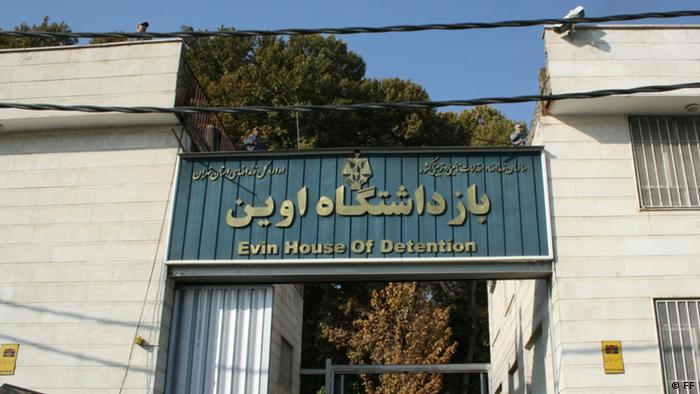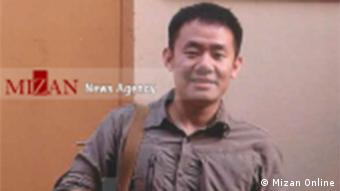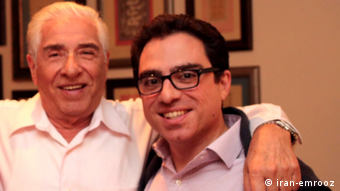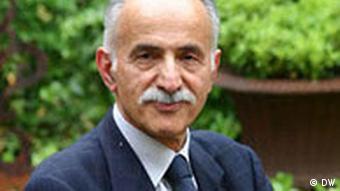Once again, an American was sentenced citizens in Iran for alleged espionage to imprisonment. Abdolkarim Lahiji, Vice-President of the “International Association for human rights” speaks of political hostage-taking.

Deutsche Welle: In Iran, an American was sentenced citizens for alleged espionage to ten years in prison. He should be already in August of last year, while trying to leave Iran, was detained. He was so nearly a year in jail with no charges. This is permissible?
Abdolkarim Lahiji: In the Constitution of the Islamic Republic of Iran is: If someone is detained, the reasons for his arrest and the charges to be read out within 24 hours. However, this law is respected in Iran as well as never. It makes no difference whether it is an Iranian citizen or a foreigner. This means that Iran respects its own laws.
According to the news Agency of the Iranian judiciary the prisoners, an American, Xiyue Wang is said to have archived the “top-secret documents” from a library …
The allegations against him could not be more absurd. Documents that are publicly accessible, may not be strictly been a secret. Apart from that, it is not clear from the documents the Iranian judiciary’s talking about.

Xiyue Wang was sentenced to ten years in prison
How can it be that he is imprisoned for a year, without that the Public will be informed about his case? When was he put on trial? How was he convicted? He ever had a lawyer? All of this suggests that it is a political case.
The case fits into an old pattern that is always staged again by the revolutionary court: Foreign citizens – in 90 percent of cases, Iranians with dual citizenship – to be arrested and as a bargaining chip for political or economic services to abused.
The case was shortly before the U.S.-made trip of the foreign Minister, Mohammed Javad Zarif publicly. Sarif is on the 17. July to attend an important UN Meeting in New York on the nuclear deal. You see there’s a connection?
I have no doubt that the judiciary communicates this harsh sentence against a U.S. citizen right now to the Public to sabotage this trip. In Iran there is a power struggle between the reform-oriented government of Hassan Rouhani wants to open up the country, and the conservative circles that have the security apparatus and the judiciary under control and the fight against any kind of rapprochement with the West, specifically the USA.
We have experienced in politically sensitive situations such cases. For example, as Jason Rezaian, the Iran correspondent of the Washington Post in Tehran, during the nuclear negotiations, has been arrested for spying allegations. The case has made direct negotiations with the United States is significantly more complicated.

Sentenced to ten years in prison in the US-Iranian Siamak Namazi and his father is Baquer Namazi:
2015 Jason Rezaian, and four more U.S. citizens from Iran were released of prison after in the United States, seven Iranian prisoners were released and the US had led a cash payment of $ 400 million to Iran. (Editor’s note. d. Red.: According to U.S. authorities, were frozen, money that Iran in 1979 had to pay for a shipment of weapons on a US account.)
The power struggle between reformers and Conservatives has become, according to Rowhani’s re-election in may, yet fierce. Currently, two other U.S. citizens detained for alleged espionage in Iran: American-Iranian business consultant Siamak Namazi and his 80-year-old father, Bagher Namazi, who had traveled for his son’s release in Iran. We don’t know what the Iranian authorities to demand for their release, but we know that the two hold as hostages.
What the international community can be taken against such a hostage to the company?
Diplomatic negotiations are an Option. Four months ago I was invited by the European Parliament to inform MEPs about such cases. Some of them knew of this Problem and had reported similar cases. For example, the British-Iranian citizen, Nazanin Zaghari-Ratcliffe, a member of the Thomson Reuters Foundation, was arrested for alleged espionage in Iran and sentenced to five years in prison. But in truth, it was taken as a hostage.
Apart from diplomacy, in my experience, is in Iran a Lot of public pressure. The Public must be informed about such cases. The more intense the coverage is, the greater the Chance that these hostages will be released.

The Iranian lawyer and human rights activist Abdolkarim Lahiji
The Iranian lawyer and human rights activist Abdolkarim Lahiji Vice President of the “International Association for human rights”.
The Interview was conducted by Shabnam Hein.